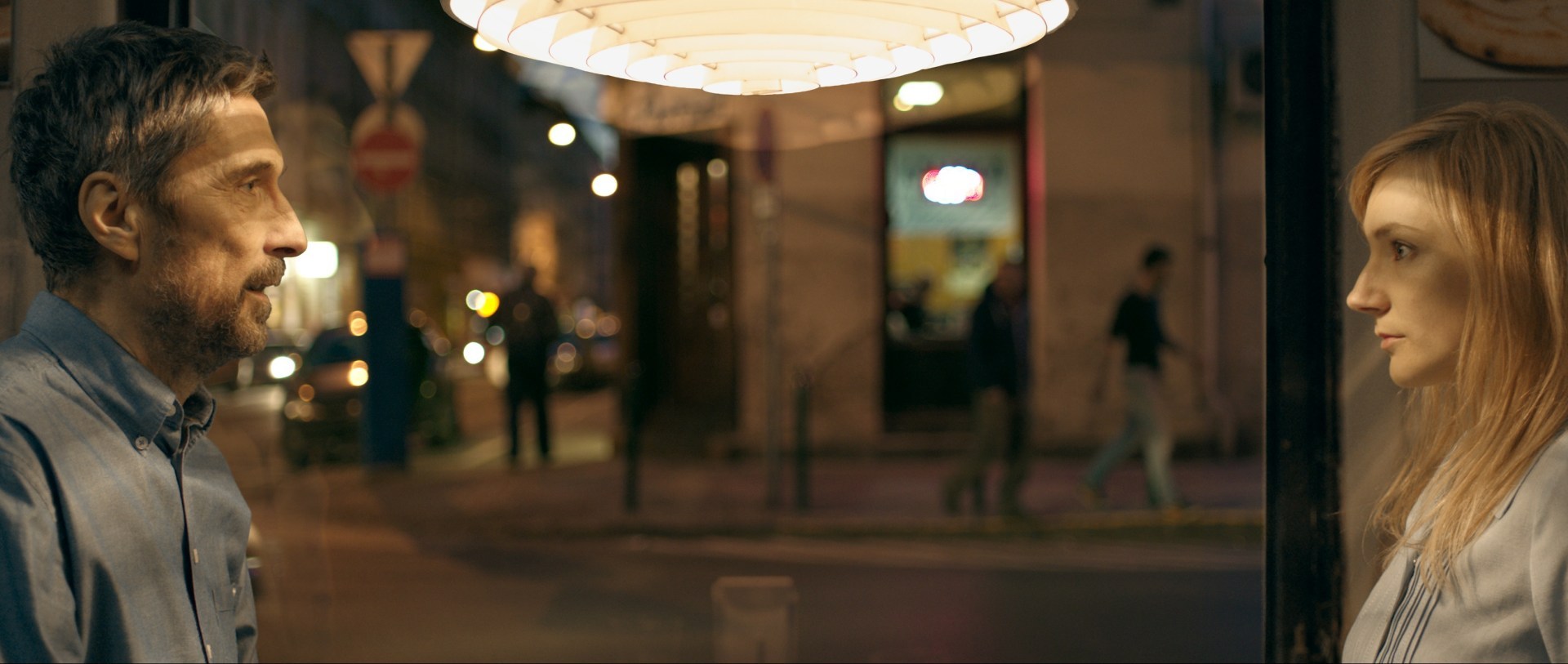For all of recorded history, humanity has been obsessed with decoding the meanings of our dreams. Are they flights of fancy, enigmatic messages from our unconscious mind, or something else entirely? It is, perhaps, the wonder of the question, rather than the hope of an answer, that ignites our curiosity.
In On Body and Soul, the eccentric and endearing new film from Hungarian filmmaker Ildikó Enyedi, abattoir workers Mária (Alexandra Borbély) and Endre (Géza Morcsányi) face no such confusion about their nightly visions. From the day the two meet, they share a single dream in which they live as deer, wandering a silent, wintry forest.
The dream compels the initially at-odds pair to connect, though doing so won’t come easy. Endre is coarsely candid and disconnected – from his job, from his colleagues, from his family. Mária, a by-the-book hygiene inspector, is presumably on the autism spectrum, and her social awkwardness and timid beauty make her a target of derision. The two can freely talk about their dreams, but neither proves particularly capable of prodding the relationship forward for most of the 116 minute running time.
The stunning dreamscape stands in stark contrast to the visceral reality of work in the abattoir. Enyedi doesn’t shy away from uncomfortable images – in one unforgettable static shot, a hanging cow is methodically decapitated – but they never feel exploitative or unnecessary. Unfortunately, the same can’t be said about the strange sub-plot that leads to Mária and Endre initially learning about their shared dream. A theft on the property flames conflict between staff, police, and a psychiatrist, yet it all leads to nothing. The time thrown away on this story would have been much better spent on more dream scenes, which become notably absent as the film progresses.
Borbély and Morcsányi are brilliant in their roles, bringing the complexity and credibility necessary to ensure the film never feels like it’s treading traditional ‘will they or won’t they?’ territory. Credit especially goes to Borbély; there are times when Mária’s condition threatens to overwhelm her character, and events could seem a little silly, but the actress keeps everything in check.
Cinematographer Máté Herbai must also be congratulated for his work here. The use of lighting and colour is one of the film’s best aspects, bringing a quiet discomfort to the others sterile abattoir, or highlighting the loneliness that plagues both dreamers. The camera work is also a standout. One shot in particular, in which Mária stands in close-up outside a swinging door, wondering whether she should join her colleagues in the cafeteria, highlights a level of visual flair typically unseen in such slow burn dramas.
It all comes together with the same sensitivity and style that made Enyedi’s Camera d’Or winner My 20th Century such a success. It’s her first film in 18 years, and while it is by no means flawless, the slew of accolades it has received – including the Golden Bear at Berlin, and a nomination at the Academy Awards – are well deserved.

